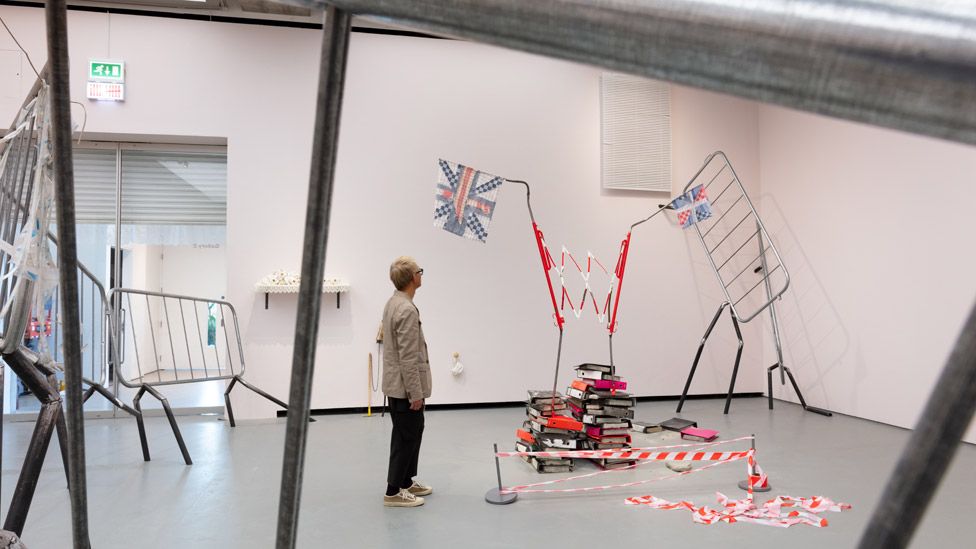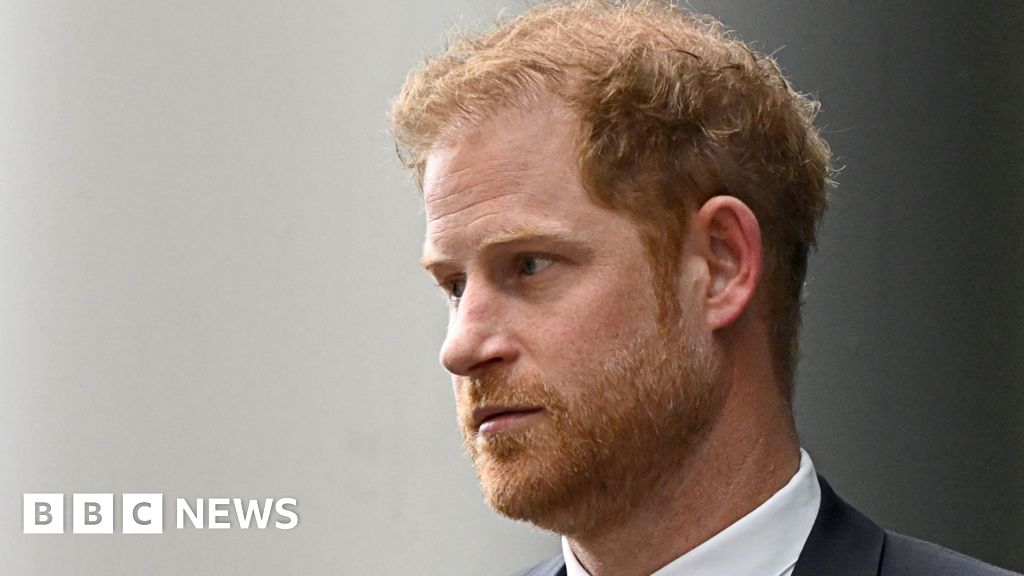ARTICLE AD BOX
 Image source, Angus Mill
Image source, Angus Mill
Jesse Darling has given crowd control barriers legs and made them look like they are running amok
By Ian Youngs
Entertainment & arts reporter
An exhibition that features crowd control barriers that have gone out of control, twisted railway tracks, barbed wire and tattered union flag bunting, making a comment on modern British life, has won this year's Turner Prize.
Jesse Darling picked up the prestigious art award and its £25,000 cheque at a ceremony in Eastbourne, East Sussex, on Tuesday.
He has said he was inspired by "the effects of many years of austerity, Brexit, the pandemic" and the "hostile environment" immigration policy.
Image source, Angus Mill
Image caption,The artist says he uses objects that are cheap and easy to find, but that hold meaning for viewers
The chair of the judges, Tate Britain director Alex Farquharson, said the work was "bold" and "engaging" with a sense of "delirious derangement".
The winning exhibition is also partly a reflection on "the state of the nation", he said.
"It's one element of it, one layer of it. I don't think it's the whole story. There is some sense, from his point of view, that these are times of crisis."
Image source, Angus Mill
Image caption,Barbed wire and a piece of net curtain hang above a crumbling mock checkpoint at the entrance
Image source, Angus Mill
Image caption,Tattered and faded union jack bunting hangs from the ceiling
Jesse Darling was many of the critics' favourite for the prize. His room of jaunty crash barriers and union jacks is inventive and original.
Darling - who was born in Oxford but lives and works in Berlin - has said he is reflecting the hostile environment in the UK towards immigration in this work.
The exhibition entrances are turned into checkpoints complete with barbed wire. But the space itself feels alive and humorous.
That's down to the crowd control barriers Darling has sculpted at prancing angles. This is anthropomorphising writ large - the very things that are used to corral people by the police are given a life of their own, turned into creatures that can't be controlled.
We're also surrounded by frilly curtains and a maypole adorned with police tape and anti-pigeon spikes.
Darling has said British towns these days are showing the effects of austerity, Brexit and Covid. He's riffing on that in a show that tackles nationhood and British identity.
All the four nominated artists were reflecting what's happening in Britain right now. In the end, Darling was felt by the judges to be a cut above.
The other nominated artists were Ghislaine Leung, Rory Pilgrim and Barbara Walker.
Among the critics, the Telegraph's Alastair Sooke called Darling's room in at Eastbourne's Towner gallery "the most exhilarating presentation I've encountered at the annual exhibition in recent years".
Image source, Angus Mill
Image caption,Files are filled with concrete as a comment on beaurocracy
Sooke wrote that the artist "offers an unruly vision of contemporary Britain as both ruinous and suffused with impish magic".
"Compared with such sculpturally compelling work, which boils and bubbles with brilliant ideas and touches, the offerings from the other shortlisted artists seem lukewarm."
Image source, Angus Mill
Image caption,Darling said he was inspired by Eastbourne as a typical faded English seaside town
However, the Sunday Times' Waldemar Januszczak did not like Darling's entry. "I suppose it's a glumly poetic interpretation of Britain today," he wrote.
"Where it fails is in its overall visual impact. It's too bitty."
Image source, Angus Mill
Image caption,Rollercoaster rails appear to crash through the gallery wall
Image source, Angus Mill
Image caption,A cabinet contains hammers that are decorated like toys, with colourful ribbons and bells
Asked last month by BBC Radio 4 Front Row what winning the Turner Prize would mean, Darling was not overly enthusiastic.
"The money would be nice - I might use it to retrain," the artist joked.
"No, it would probably mean I have to change my name. The visibility of the Turner Prize is not everyone's cup of tea."

 11 months ago
22
11 months ago
22








 English (US)
English (US)